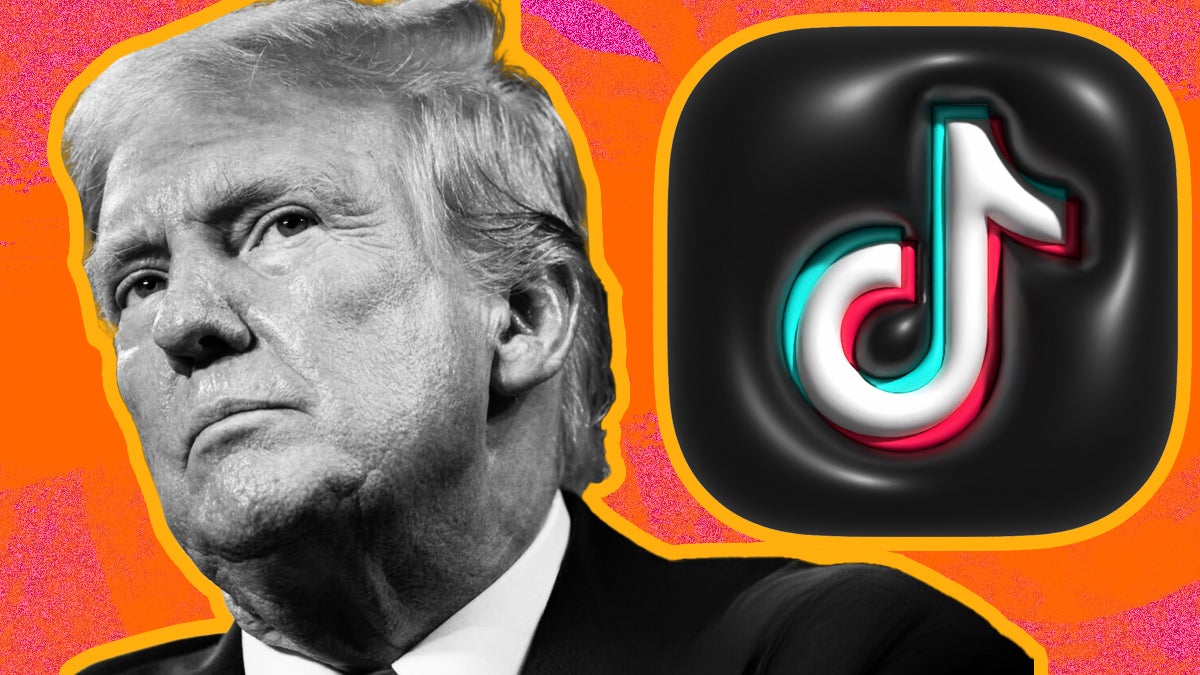
In a policy reversal from his last administration, President-elect Donald Trump campaigned this time around to cancel the TikTok ban and ensure the app remains consistently available. His former advisor Kellyanne Conway remains a fan of the app, and told The Washington Post this week that Trump both “appreciates the breadth and reach of TikTok” and feels that “Democrats are the party of bans.” He’s also praised TikTok as a key competitor to Meta’s social media platform Facebook, which Trump famously considers an “enemy of the people.”
But just how did we get here, with the government getting ready to enforce a ban on a popular service that Americans clearly like and want to keep around? (Research published earlier this year by Pew suggests that around one-third of Americans have personally used the app, a 12% increase since 2021.)
To understand the TikTok ban, we have to go all the way back to the year 2020. In January of that year, the US Defense Department – under President Donald Trump – labeled TikTok a security risk due to its close working relationship with the ruling Chinese Communist Party.
At present, TikTok is a wholly owned subsidiary of a Chinese tech company, ByteDance, which is registered in the Cayman Islands but operates primarily out of Beijing. While both ByteDance and the Chinese government have long denied any specific sharing of user data or other kinds of quid pro quo agreements, Western governments remained concerned.
It’s possible, though never exactly demonstrated with evidence, that the Chinese government could potentially use TikTok videos to propagandize American viewers. Additionally, Chinese laws that give the government a lot of free reign in simply taking information they want from private companies raised red flags for world leaders. Under Chinese law, businesses and organizations essentially have no choice but to cooperate with research being performed by state intelligence agencies. It’s also notable that ByteDance owns a separate video streaming app, Douyin, which is closely monitored and controlled by the Chinese government, which blocks any material that’s considered “subversive” or harmful for young people. (They don’t even allow “Peppa Pig,” which the Chinese Communist Party deems a celebration of “unruly slackers.”)
After the Department of Defense issued its decision, President Trump personally expressed an interest in potentially banning TikTok, viewing it as a national security threat. In August of 2020, Trump signed an executive order that imposed sanctions on TikTok, outlawing any transactions between ByteDance and US citizens (which would in effect block American companies from advertising on the app, and could have kept it out of Google and Apple’s app stores).
TikTok responded by both agreeing to sell a portion of the company to an American firm, while also suing the Trump administration over the executive order. ByteDance argued that the ban was actually a covert effort to aid Trump’s re-election effort, and intended as retaliation against American TikTok fans who had been using the app to prank the president.
Upon entering office in 2021, President Joe Biden reversed Trump’s executive order, stalling a de facto TikTok Ban. However, Biden didn’t completely abandon the idea of reigning in the foreign-owned app. He proposed an overall review of the risks posed to Americans by the app, particularly when it comes to their private data and information. Based on this review, in December of 2022, Biden signed the No TikTok on Government Devices Act, which prohibited downloads of TikTok on any devices owned by the US government (with a few exceptions).
In January of 2023, Republican Missouri Senator Josh Hawley introduced a bill that would ban TikTok nationwide, though the contentious proposal never made it past the Senate floor. Then in March, the US Department of Justice and the FBI launched a formal investigation into TikTok, and specifically allegations that ByteDance was using the app to spy on American journalists. All of this led to the Protecting Americans From Foreign Adversary Controlled Applications Act, which was signed into law by President Biden in April of 2024. The Act outright bans social networking services that are determined by the US President to be a “foreign adversary controlled application,” and the rule would explicitly apply to TikTok. Unless ByteDance divests, and the company found a new owner outside of a country deemed a “foreign adversary” by the US, TikTok will be banned as of January 2025.
TikTok and ByteDance maintain that these laws are unconstitutional, attacking Americans’ First Amendment protections around freedom of speech, and have vowed to present legal challenges to them. But the political winds have changed in America, and incoming President Trump seems less inclined to take action against TikTok, whether or not it poses a threat to Americans’ data privacy or even national security. In a video post to his Truth Social platform in June, Trump vowed to save the app. And as Kellyanne Conway recently noted to the Washington Post, Trump’s posts on TikTok – along with appearances on podcasts and other digital media outlets – helped propel him to electoral victory for a second time.
It’s not entirely clear what Trump might do specifically in order to “save” TikTok, though the Protecting Americans from Foreign Adversary Controlled Applications Act itself gives him a bit of leeway as President. His first step would likely be extending the deadline, giving ByteDance more time to find a suitable buyer. Repealing the law outright could prove more complicated, and may even renew those privacy and national security concerns among American leaders. But at this point in our political history, who can really be certain of anything? TikTok might very well be saved.




